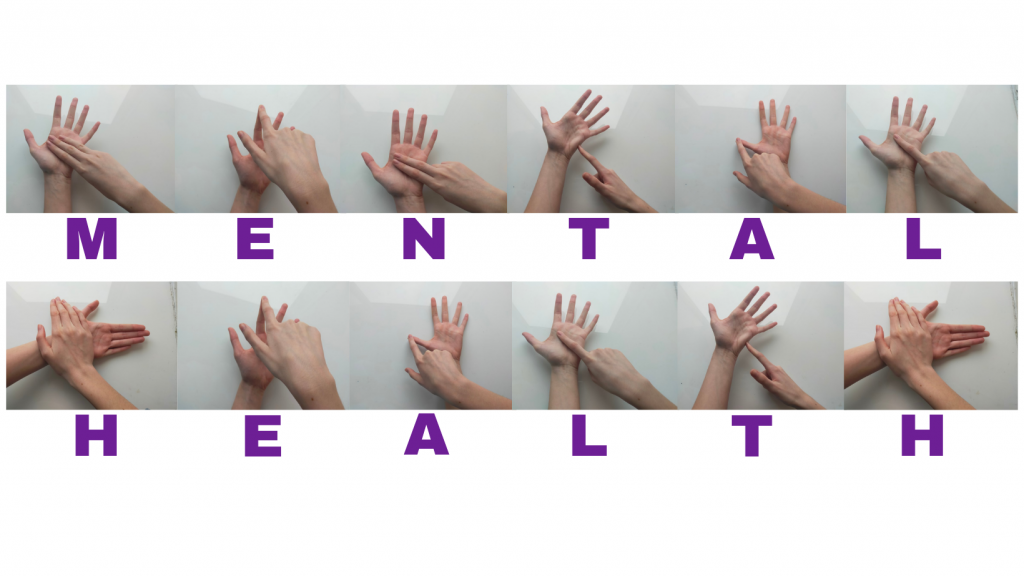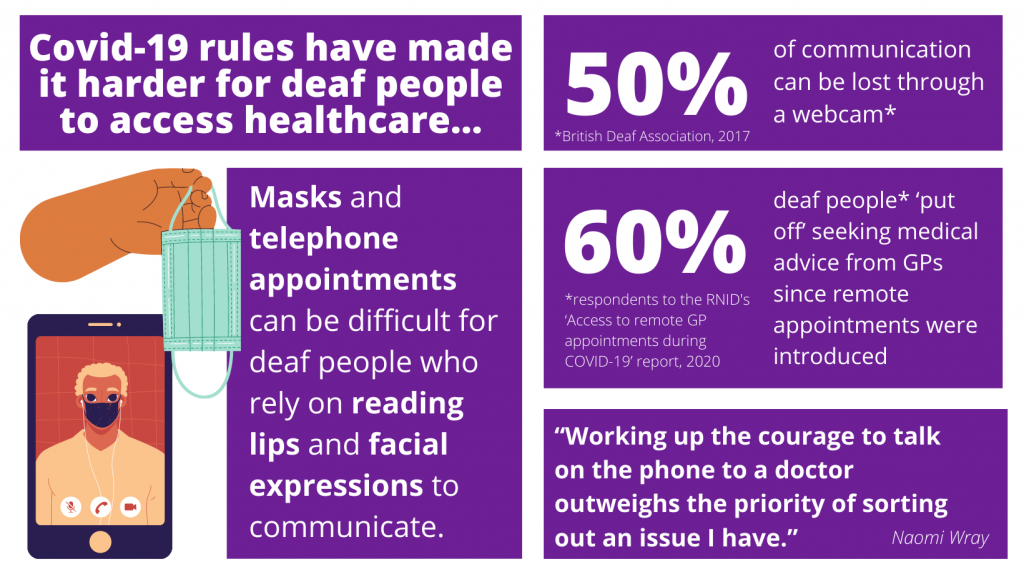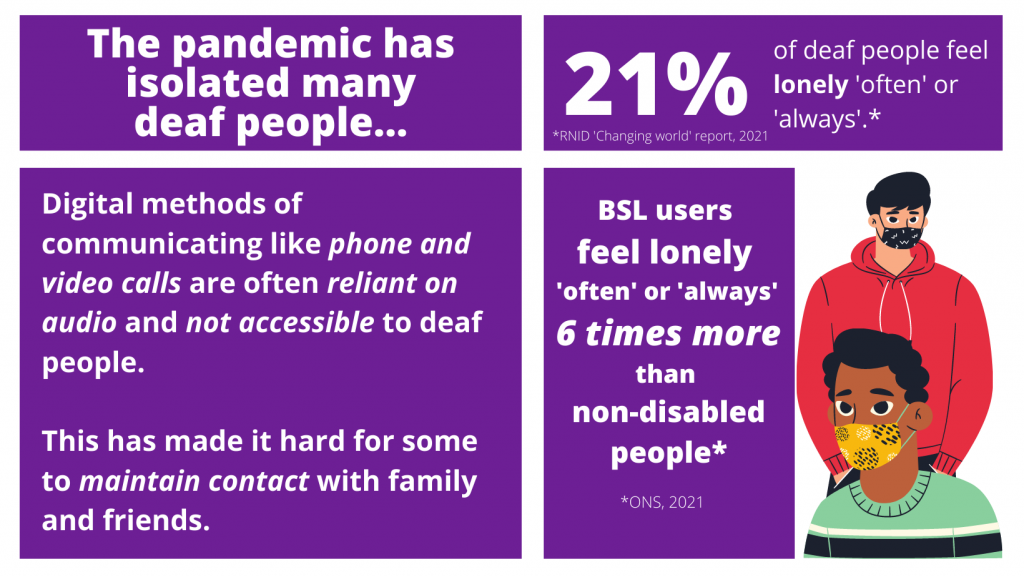A report has found that specialised deaf mental health services in Wales are non-existent, forcing many to travel to England for accessible treatment

Deaf people are twice as likely to experience mental health issues during their lifetime than the general population, according to a recent report. However, for deaf people living in Wales, the situation is worsened by a critical lack of access to mental health services.
Wales is the only country in the UK without an established pathway for deaf people who require mental health care.
40% of Wales’ 575,000 deaf people will experience mental health problems, according to the report by a group of Welsh deaf mental health organisations. But existing services do not cater to the community’s needs, often forcing patients to travel to England for treatment.
The lack of provision for Welsh deaf people begins in childhood. 80% of the 2,500 children deaf children in Wales attend mainstream schools with no specialist facilities.
Children who are deaf often grow up believing opportunities are not open to them
Louise Sweeney, CEO of Wales Council for Deaf People
Growing up deaf can be deeply isolating.
Louise Sweeney, CEO of Wales Council for Deaf People said, “Children who are Deaf often grow up with hearing parents and do not know any Deaf role models. They often believe opportunities are not open to them in the way they are for hearing children.”
There are no Deaf Child and Adolescent Mental Health Services (CAMHS) centres in Wales.
This isolation is compounded by the discrimination and stress that deaf people experience daily, which contributes to experiences of anxiety and depression.
Why do deaf people suffer from higher rates of mental health problems?
The first barrier
The report found that problems with healthcare access start in GP surgeries, where many staff do not know how to book interpreters. Telephone bookings and virtual appointments are much more common since the beginning of the pandemic. Unfortunately, they often rely on audio which is inaccessible to deaf people.
In 2016, SignHealth, a deaf health charity, found that 70% of deaf people who wanted an appointment with their GP did not attempt to make one, as they thought it would be too difficult to communicate.
Naomi Wray, 21, a Cardiff resident who is profoundly deaf, said, “Phone appointments make me very anxious. To have to discuss sensitive topics on the phone and receive advice that I may not hear correctly makes it all the worse.”

Mental health services
The lack of accessibility continues in mental health services. There is no specialist deaf mental health service in Wales. Therefore, deaf people may be put on a local mental health ward with limited access to communication until, if they are fortunate, an interpreter is used when they are assessed by a doctor.
Alternatively, they may be admitted to a specialist unit in England. But this can only take place after funding is agreed, causing a significant delay and isolating people from their family and friends.
Ffion Griffiths, 23, who is profoundly deaf, described her experience with the Welsh mental health service as “a very difficult and frustrating experience”.

After being assessed by a Welsh psychiatrist, the Neath resident was referred to a mental health service in England at her parents’ request. But this procedure took months, causing her mental health to further deteriorate. Only after another assessment from an English psychiatrist was she able to access counselling.
A deaf counsellor would allow the patient to be more expressive, as they would relate to the client’s experience and their cultural upbringing
Ffion Griffiths
Ffion was allocated a hearing counsellor, meaning that she needed a British Sign Language (BSL) interpreter.
“A deaf counsellor would be a massive advantage as they wouldn’t require the third-party interaction [with an interpreter],” she said. “This would allow the patient to be more expressive, as the deaf counsellor would relate to the client’s experience and their cultural upbringing.”
There can also be delays in booking interpreters, since there are currently only 48 registered BSL/English interpreters living in Wales. This falls short of a target of 64 interpreters set by the Welsh government and EU in 2006. Agencies recommend booking interpreters at least two weeks in advance.
Looking to the future
These issues are little known outside the deaf community.
A lack of complete data means that it is difficult to present a clear picture to the Welsh government and make an accurate assessment of deaf people’s problems and needs. New patient forms at GP surgeries often do not ask about deafness, meaning that the information is not properly collated on central systems.
More accurate information should result from the 2021 Census, which worked with deaf hubs in Wales to better support sign language users in participating. The data should become publicly available in Spring 2022.
Louise Sweeney said the reason the report is called ‘Deaf People Wales: Hidden Inequality’ because Deaf people are a hidden population.
“We do not know how many Deaf people in Wales are missing out on help and support from mental health services,” she said.
We are keen to start a dialogue with the Welsh Government
The All Wales Mental Health and Well-being Group
Louise is frustrated by the political emphasis on statistics. She said, “Very often politicians will ask about numbers, but it’s more about people’s lives.”
The report has made recommendations such as deaf awareness training for all primary care staff, health providers recording patients’ preferred language (for example, BSL) and establishing a lead for deaf CAMHS. It has received several supportive replies from Assembly members.
Mark Isherwood MS made a Member’s Legislative Proposal for a British Sign Language Bill in the last Senedd, which would ‘improve access to education and services in BSL.’ However, the proposal did not win the ballot.
But since 40% of Deaf people are affected by this issue, the report calls for action.
“We are keen to start a dialogue with the Welsh Government. There is scope for significant change.”
You can read more about the Welsh deaf community here.

